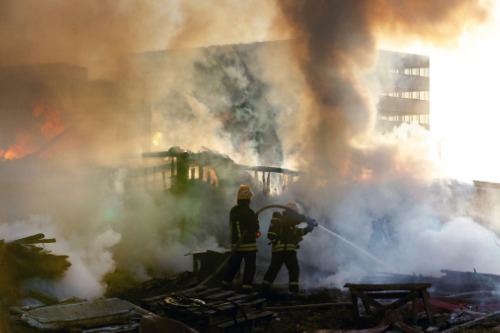

A new study by the Institute for Catastrophic Loss Reduction (ICLR) has found that the Montreal region could face between $10 and $30 billion in fire-related damages following a severe earthquake.
The study, “Fire following earthquake in the Montreal region,” was authored by Dr. Charles Scawthorn and sponsored by SCOR Reinsurance Group, Desjardins Insurance, Aviva Canada and iA Financial Group. Scawthorn was also behind a similar ICLR study in 2001, entitled “Assessment of Risk due to Fire Following Earthquake Lower Mainland British Columbia.”
According to the report, strong shaking in the Montreal area could lead to hundreds of ignitions. The quake could also cause breaks in water supply and damage to fire stations – this would limit the capability of firefighters to respond to and suppress any fires.
Earthquake insurance penetration in Quebec is low, but fire following earthquake is typically covered under fire policies or through fire following earthquake endorsements, the report found. In spite of this, many residents mistakenly believe they are insured for earthquake, but are not. Scawthorn also noted that some insurers have considerably greater exposure due to fire following earthquake than they understand.
Last month, the Insurance Bureau of Canada (IBC) released a report which similarly found that 33% of Quebecers mistakenly believe they are insured for quakes.
“This research found that Montreal area fire agencies are very advanced, well-equipped and modern in their organization, methods and tactics. But even so, a large number of simultaneous fires caused by an earthquake could overwhelm fire services unless municipalities take action before a major earthquake strikes,” said Paul Kovacs, ICLR executive director.
Scawthorn suggested in the ICLR report that the expected losses could be significantly reduced through investments in an auxiliary supply of water for firefighters. Seismic retrofits to fire halls were also recommended, as well as other loss prevention actions.
Anticipating a major earthquake to strike Quebec based on historical seismic data, the ICLR said in a statement that it and its 120 member insurers are “pleased to support research that provides a better understanding of this risk.”
